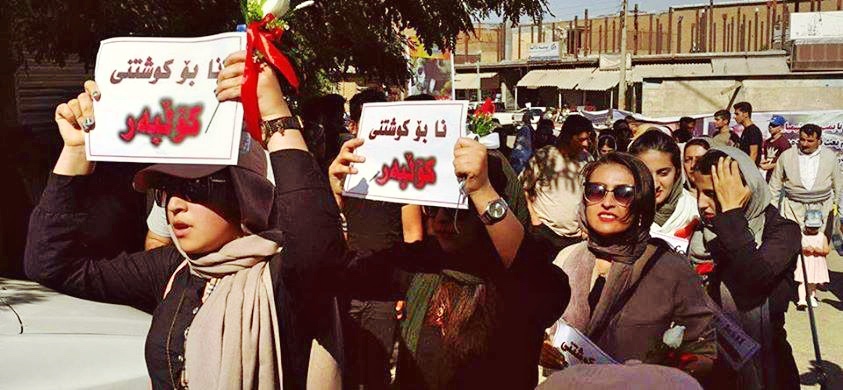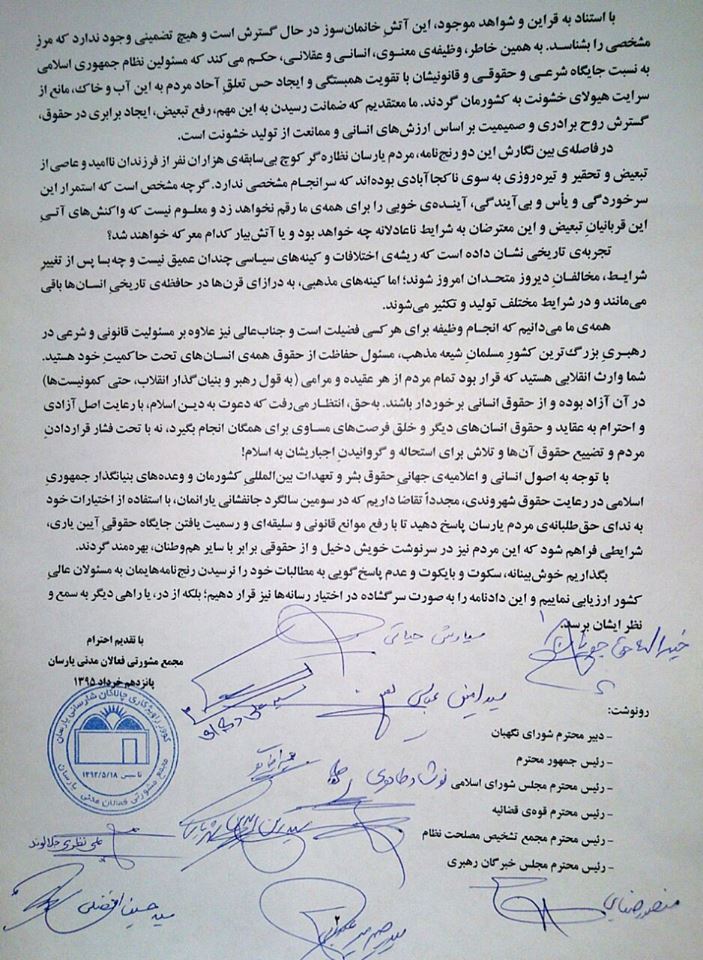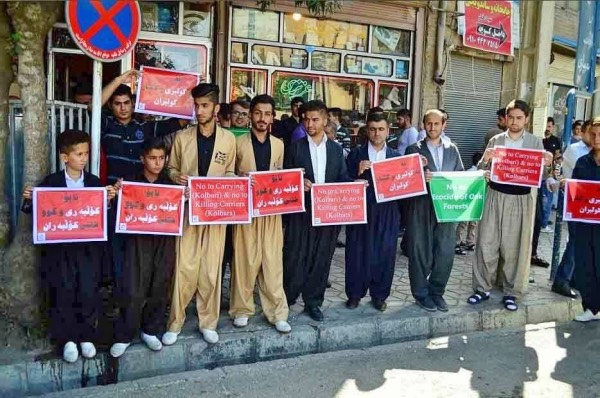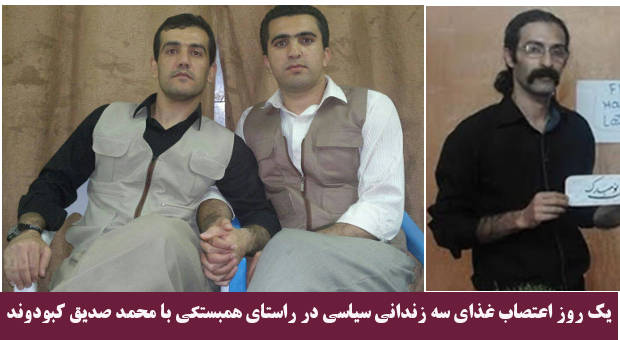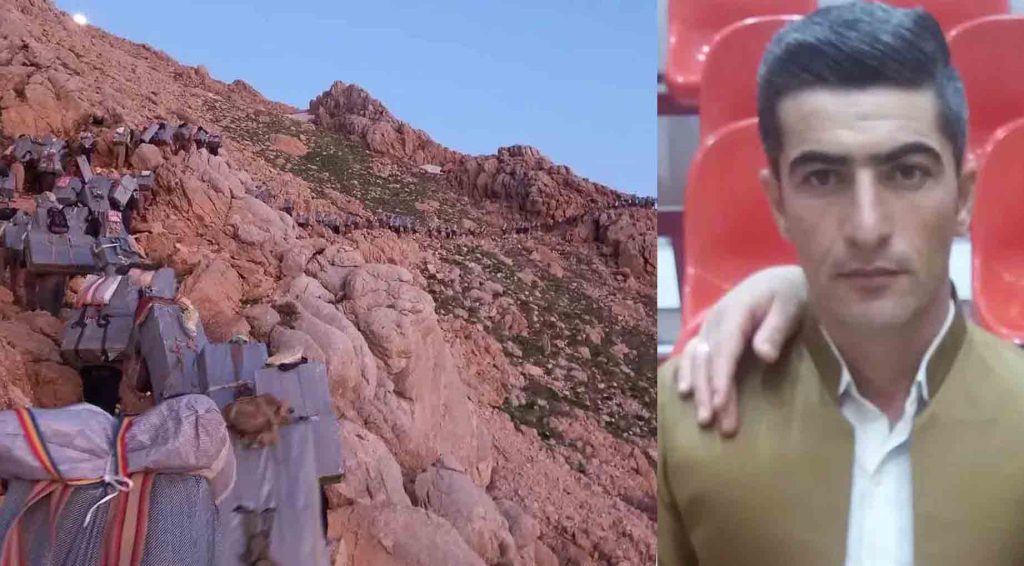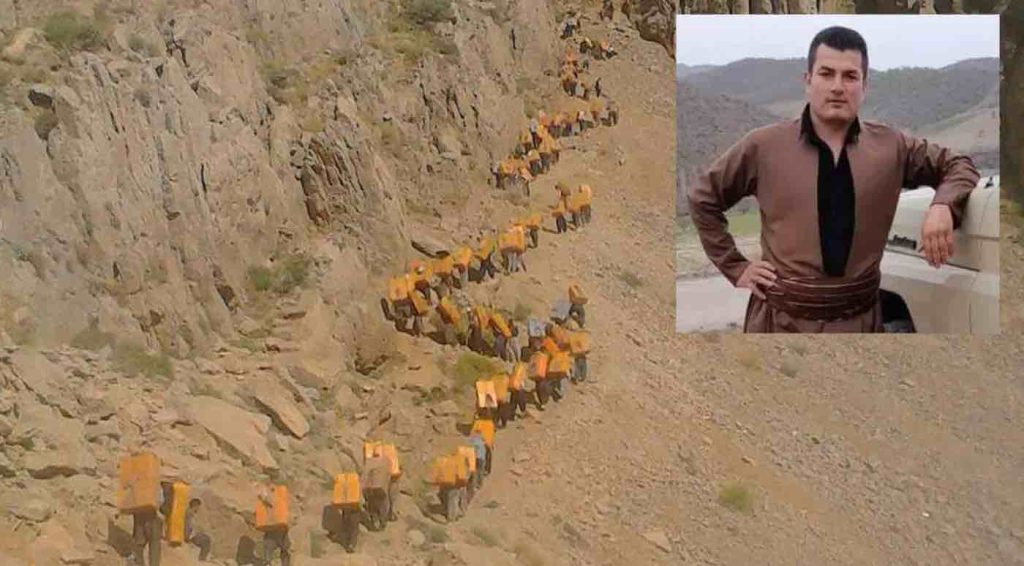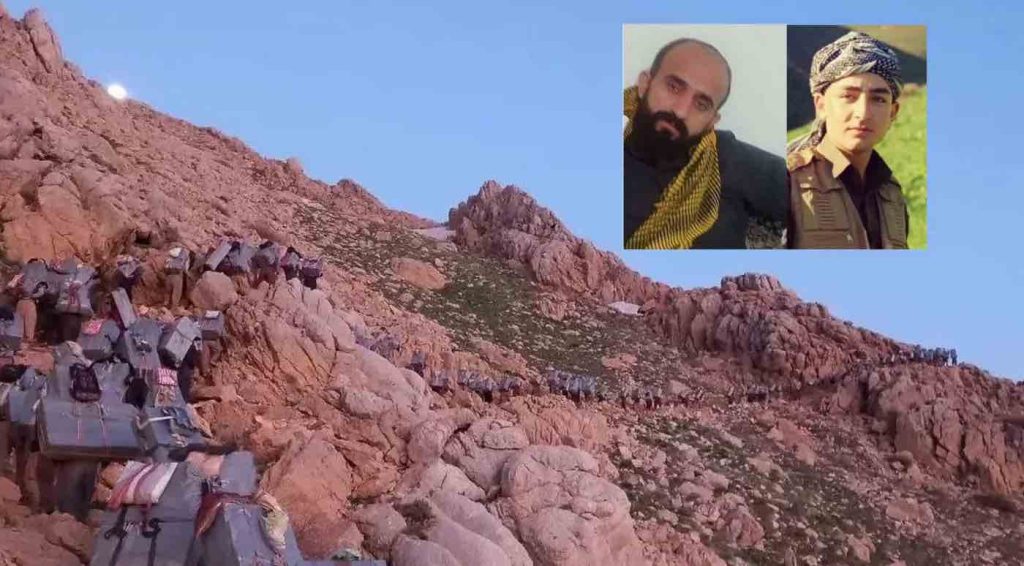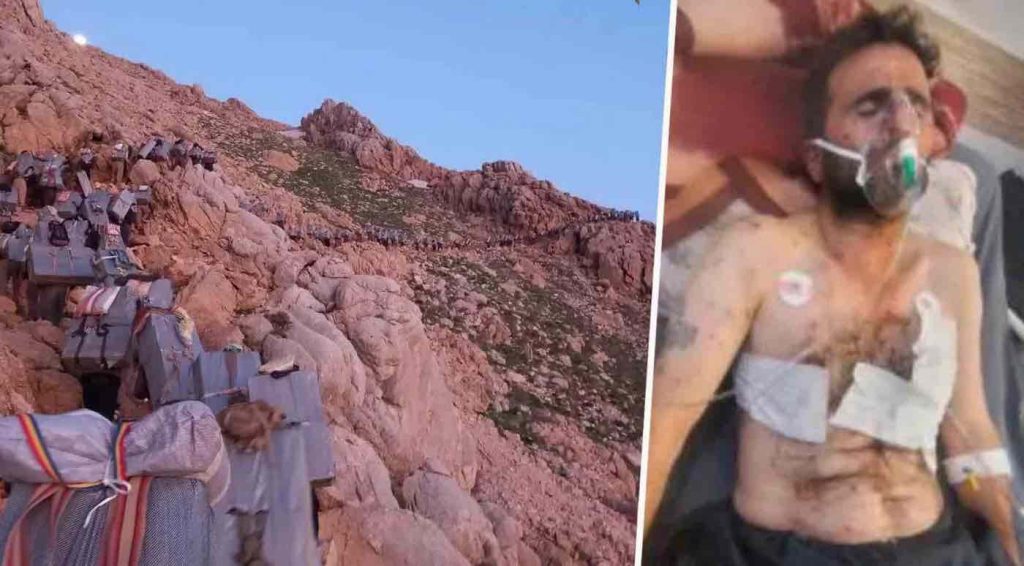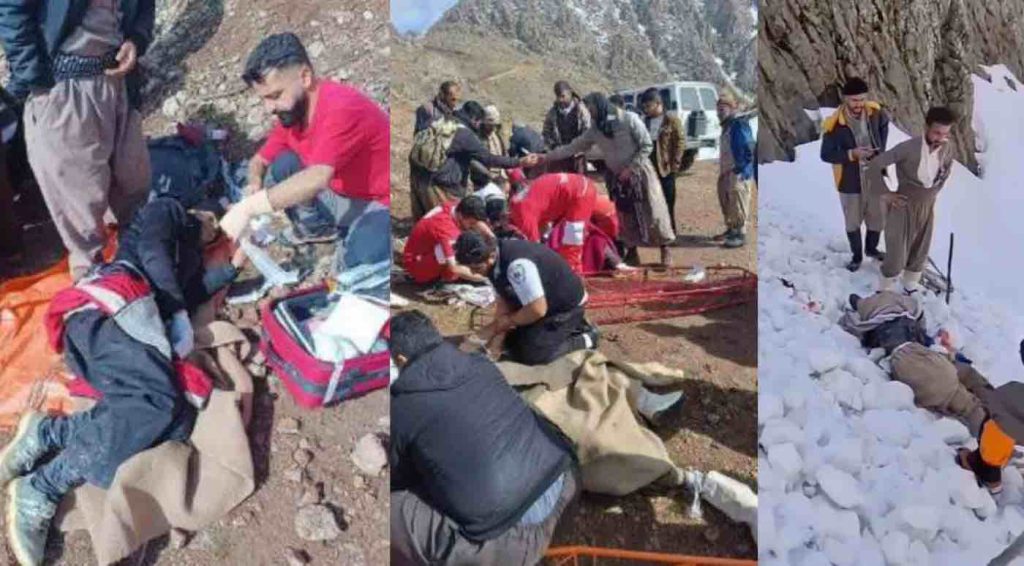The Iranian authorities have interrogated three Kurdish civil society activists for having participated in an event held to remember victims of a chemical attack in the border town of Sardasht on 28 June.
Two of the Kurdish activists, Mostafa Azizpour and Salahedin Khezri, were interrogated and threatened not to take part in such events.
The other activist, Farhad Lotfi, had walked from the Kurdish town of Bokan to Sardasht to mark the commemoration event and was questioned by undercover agents of the Iranian government after the event.
The former Iraqi government of Saddam Hussein attacked the Iranian Kurdish town of Sardasht using chemical weapons on 28 June 1987 in the last phase of the Iran-Iraq war.
The chemical attack left over 100 civilians killed and thousands wounded in Sardasht, according to Iranian government figures.
Kurdish civil society activists and locals in Sardasht had gathered to remember the victims on 28 June, which is the anniversary of the chemical attack, but they had also protested human rights violations in Iran’s Kurdish region given that the killing of Kurdish Kolbar workers has recently been on rise, a source said in an interview to the Kurdistan Human Rights Network (KHRN).
Participants of the event held placards that read: “Stop killing Kolbars”, the source said.
Kolbars are extremely poor cross-border workers, who transport items on their back from and to Iraq and Iran.
They are usually locals living on the Iran-Iraq border, who have no choice other than working this job owing to rising unemployment in Iran’s Kurdish region.
Iranian government’s undercover agents had collected the placards during the 28 June gathering at the commemoration event and identified most of the participants.
The next day the intelligence office in Sardasht had called Azizpour and Khezri for a meeting and interrogated them for several hours, the source said.
Meanwhile, a local source in the town of Bokan said that Lotfi is an environmentalist activist and walked from Bokan to Sardasht to mark the event, but he was interrogated by undercover intelligence officers in the Rabat area, a central district in Sardasht County.
The source added: “The undercover agents at the event in Sardasht collected the placards and tried to arrest some of the participants, although they refused to show any ID cards to the activists. However, but they eventually left the scene because of the presence of a large number of people and incoming cars stopping by the event.”

